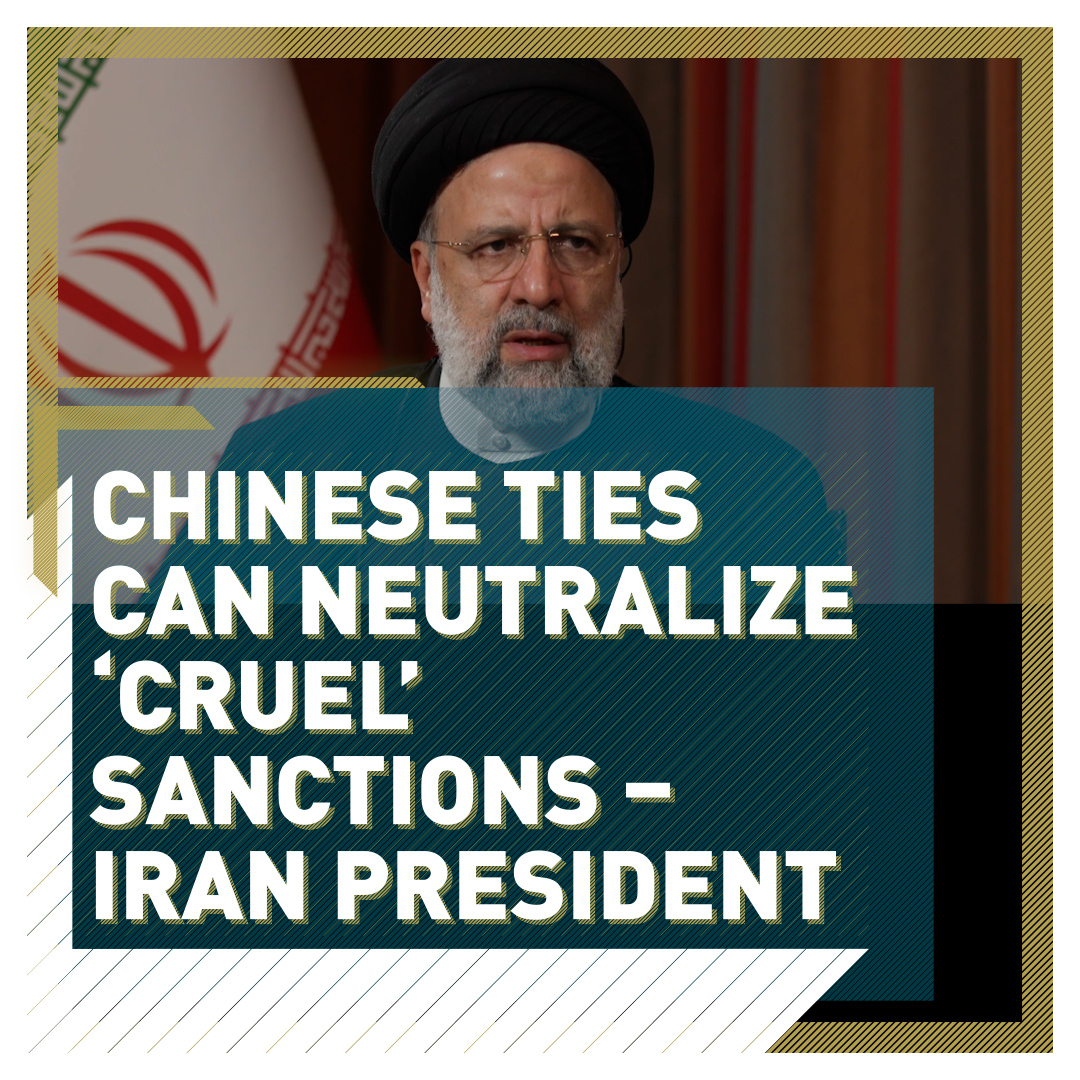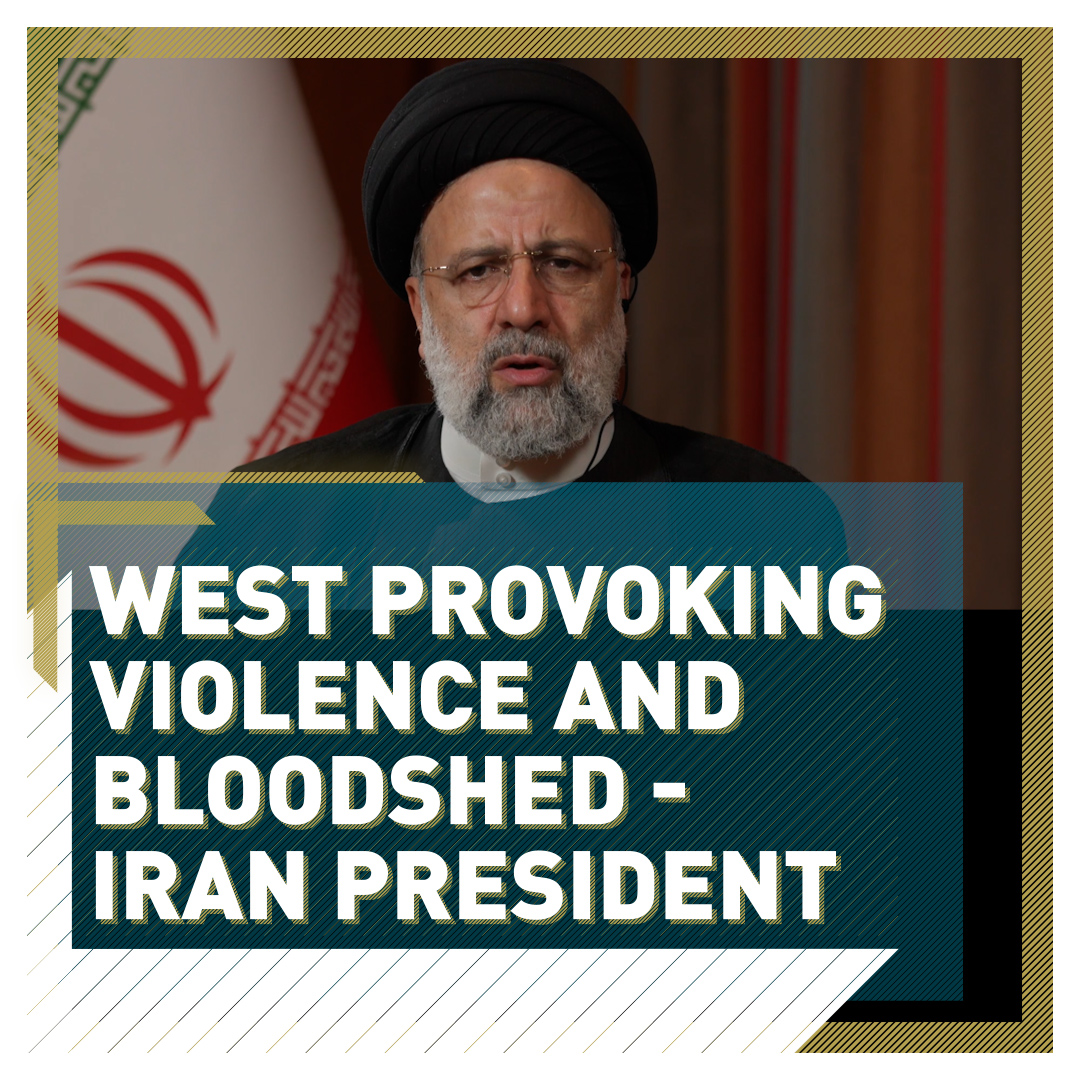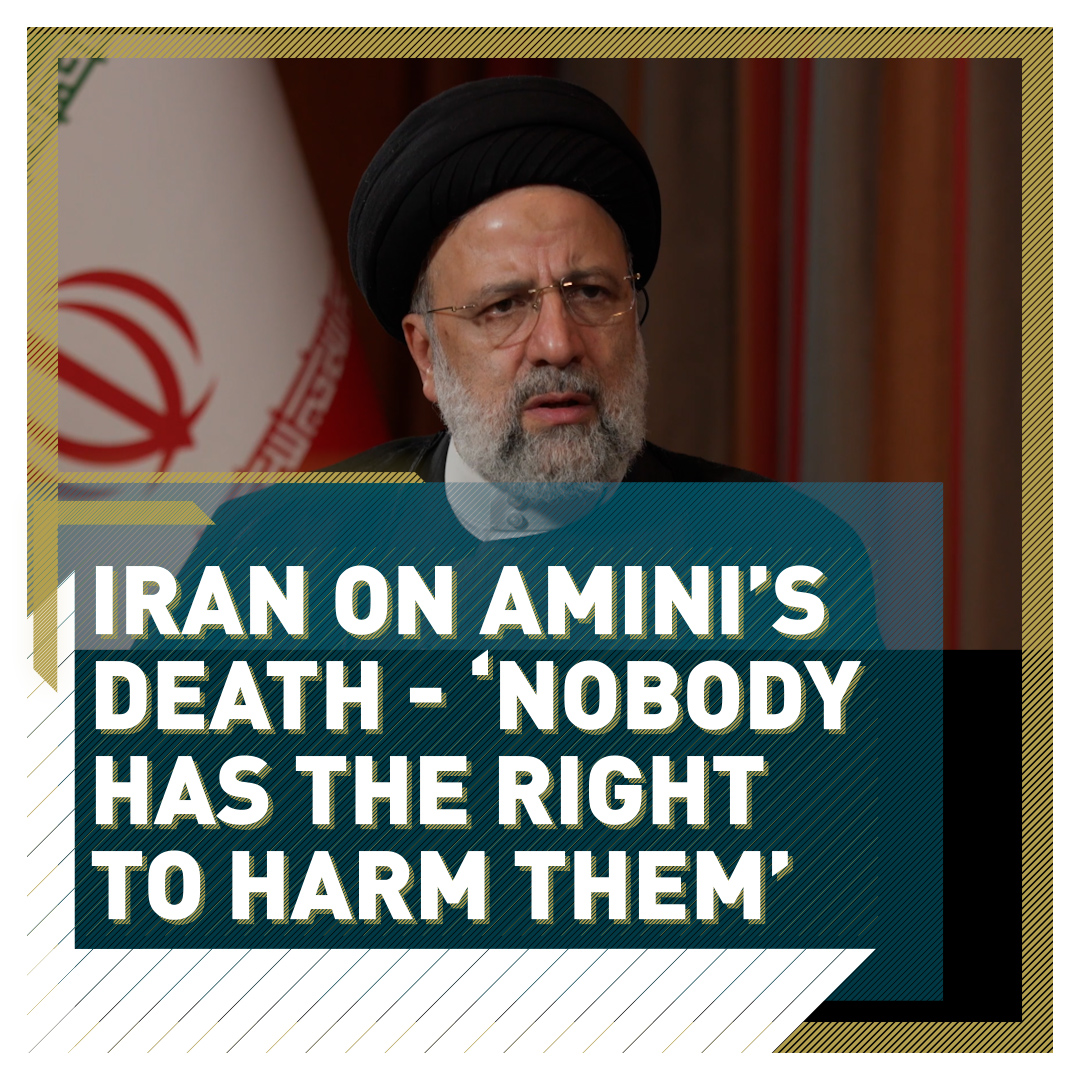00:59

Building closer relationships with China and Russia can help "neutralize" the "cruel" sanctions imposed by the U.S., says the President of Iran.
The U.S. reinstated economic sanctions on Iran after then-President Donald Trump abandoned a landmark nuclear deal in May 2018. These included restrictions on the energy, shipping and financial sectors.
The U.S. announced fresh sanctions on Iran on Thursday, targeting Tehran's 'morality police' and security officials, following the arrest and death of Mahsa Amini for breaking headscarf rules.
In an exclusive interview with CGTN at the UN General Assembly in New York, Iranian President Ebrahim Raisi said: "The relationship between Iran and the countries in the region can certainly neutralize a great many of these sanctions - today at the hands of the Americans.
"Sanctions are a weapon. In yesteryears, they used to put boots on the ground, so to speak, and use military action. But today the face of that threat has been changed to the imposition of cruel sanctions, which is a cruel imposition on nations.
"And in reality, it is a form of war waged against nations. The relationship between the Islamic Republic of Iran, China and Russia and others who may be under sanctions can, in itself, be a great contributor to neutralizing these sanctions imposed by the Americans.
"Despite the sanctions we have been subjected to thus far, we have seen a great progress in the Islamic Republic of Iran. The Americans did not expect this level of progress. However, we are committed and focused, despite the sanctions, to move towards even more progress in many different arenas in our country in a committed and firm fashion, by augmenting relationships with friendly countries such as China, such as Russia, such as Central Asian countries.”
00:58

Iran and China have also been involved in discussions to revive the 2015 Iran nuclear deal which limited Iran's nuclear activities in return for the lifting of sanctions.
The U.S. said negotiations had "hit a wall" because of Iran's insistence on the closure of the UN nuclear watchdog's investigations, quashing any optimism there had been on an agreement for the mutual return of the two countries to the Joint Comprehensive Plan of Action (JCPOA).
Talks began in early 2021 between the U.S. the European Union, the UK, France, Germany, Russia, China and Iran.
Iran's President emphasized a desire for a new refreshed world order.
"People from all over the globe do not have fond memories from the old time, the era of hegemony, the era of unilateralism, the era of trampling upon the rights of many nations," Raisi added.
01:49

"We believe the new era is an era of multilateralism. During our cooperation between us, China, Russia and other members within the Shanghai Cooperation Organization (SCO), the Eurasia Organization and Economic Cooperation Organization (ECO), these collaborative efforts in cooperation can bring about the creation of new powers.
"We firmly believe that this can also contribute to the elimination of unilateralism."
On building ties specifically with the Chinese, Raisi said: "We have a deep-rooted relationship and a very old relationship with China. It is a strategic relationship. We have signed a 25-year agreement, a comprehensive agreement with China, and perhaps some are less than happy due to the fact that we have reached this agreement.
"We do believe that a comprehensive execution and implementation of this accord between the two nations requires robust commitment. I do believe that during President Xi Jinping's tenure, considerable steps have been taken by our friend, the country of China, in the fields of economics, trade and production.
"Capacities have been created under his leadership to augment the relations between the Islamic Republic of Iran and China. I do think what we have done with the current Chinese leadership is to pave the way for even better and more robust relations moving forward."

